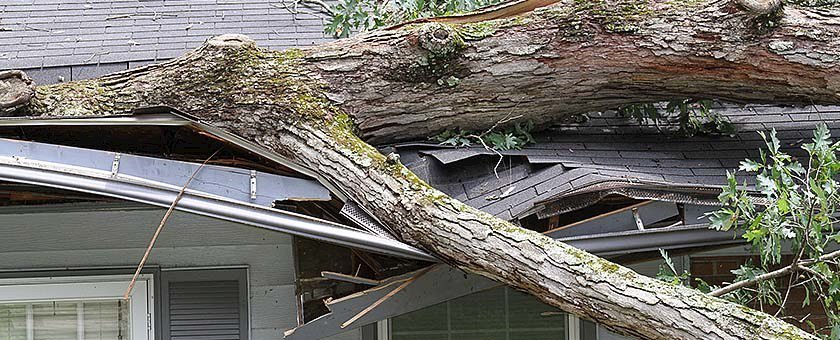The arrival of Spring is always welcome. But like most good things, this season is not without risk. With Spring comes the start of the storm season, when most severe weather occurs between March and September. Taking steps to prepare ahead of time can help mitigate losses and ease your stress level.
Severe winds are especially destructive. According to ValuePenguin (valuepenguin.com), as climate change worsens, natural disasters continue to increase. Depending on the nature of your business, you could be at a greater risk of loss from high winds. If you own property or equipment, you face costly damage and replacement risk. When you understand your risks you can plan and protect your business accordingly.
Taking a proactive approach to severe weather preparedness can help lessen the amount of damage your business sustains. The safety of your staff and customers should be top-priority during a weather event. What happens if severe weather strikes during business hours? What steps should your employees take when there is an impending weather event? Creating an emergency action plan provided by CDC.gov, can help avoid unnecessary chaos and promote safety. Tornados can develop so rapidly that you may have little, if any advance warning.
Train your team to be aware of the following danger signs:
- Dark, often greenish sky
- Large hail
- A large, dark, low-lying cloud—particularly if rotating
- Loud roar, similar to a freight train
- If you see approaching storms or any of the danger signs, be prepared to take shelter immediately
It’s nearly impossible to avoid damages during the most severe storms, but there are steps you can take to reduce the amount of loss you sustain. First and foremost, make sure that your insurance agent is aware of the scope of your business and all property you own and use for business purposes. Your agent’s goal is to ensure you are properly covered. Next, take action to help reduce the amount of damage you withstand with these helpful tips:
- Inspect and repair roofs, loose siding and broken venting
- Secure items that may become projectiles during a wind event
- Inspect large trees for broken, weak and overhanging limbs
- Have a stand-by power source
- Garage your vehicles
- Back-up your computer data on a regular basis
You can’t control the weather, but by being proactive you can reduce the financial risk you face.


